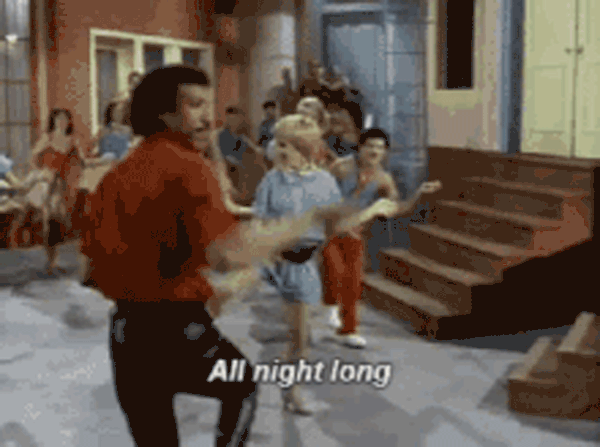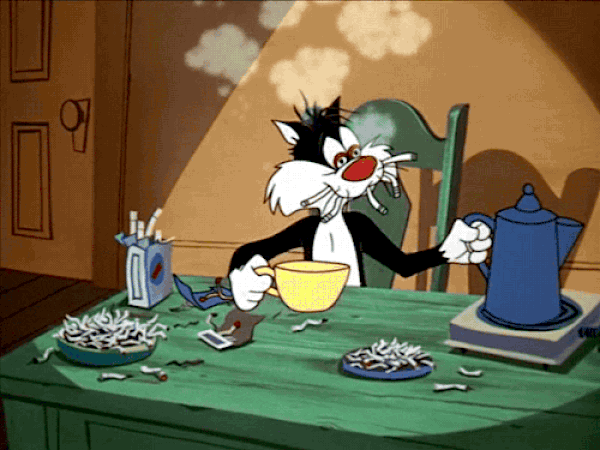4 reasons why an all-nighter won’t rescue your pitch deck.
April 13, 2022

5 min

It’s 10 p.m., but your night has just begun. While you’re reading this article, you’re asking yourself how you got into this miserable situation. We’ve asked ourselves that same question, too. There could be a number of reasons why you’re planning to pull an all-nighter to get your pitch deck done. Maybe this honorable task ended up on your desk right as you were getting ready to finish work for the day. Perhaps you had other things to do, or you’re a believer in #workhardplayhard. Even if we can totally sympathize with scenarios number 1 & 2, experience has shown that pulling an all-nighter isn’t a great idea. Read on and discover four good reasons to ditch the deck and doze off into dreamland!

1. What was on slide 5 again?
When we sleep, our bodies are replenishing and repairing themselves, getting us ready for a new day. When we hinder this process by staying up all night, we certainly can’t feel refreshed the next morning. We’re all familiar with the dreaded tiredness that comes on the heels of an all-nighter: it’s hard to concentrate and we make small (and sometimes big) mistakes. A lack of sleep also impairs our memory: while we’re sleeping, our brain is busy processing what occurred during the day and transferring events from our short-term to long-term memory. So remember those strokes of genius which you had in the middle of the night that promptly made their way into your deck? You might find yourself fumbling when faced with questions about them on the next day. It’s also highly recommendable to have a second pair of eyes (your own won’t be so fresh) proofread the deck and check for spelling and grammar mistakes or layout issues.

2. Pitch deck or bar-hopping?
Let’s be honest: no one looks good after a night without sleep. In your meeting with the new investors the next day, your all-nighter will certainly not go unnoticed – your persuasive prowess will be diminished and you’ll be putting that important first impression at risk. Moreover, a study conducted by sleep researchers revealed that a sleepless night can affect our mental performance in ways similar to alcohol consumption. According to the sleep researcher Christine Blume, when you’ve been deprived of sleep for 24 hours, the limitations on your performance ability are equal to having a blood alcohol content of 0.8%. At this level, your ability to react is already reduced by roughly 50%. For reference: if you drive in Germany with a BAC of 0.8% , you are committing an offense. So perhaps you’re better off passing on that all-nighter. Besides, later on you can spend a night out clubbing to celebrate your successfully given pitch.

3. The best ideas come at night?
There’s a longstanding and popular myth of creative people having their best ideas at night. The German psychiatrist Emil Kraeplin distinguishes two chronotypes: the early birds and the night owls. Kraeplin believes that each person has an internal clock, which is responsible for guiding the metabolic processes in our bodies, including our hormone levels and thereby our sleep and awake stages – which is why the so-called night owls remain “naturally” longer awake and productive late into the evening hours. So is an all-nighter a good option for you if you’re a night owl? This might ruffle some feathers, but the answer is no. The reason why good ideas often come to us at night or in bed is due to the theta wave stage our brains enter when we’re half asleep. This stage is closely linked with our subconscious and our creativity. An all-nighter can prevent you from reaching this stage, especially if working at night doesn’t correspond to your natural biorhythm.

4. Why’s this stupid projector not working?
Our organic system is geared towards living in harmony with nature, and the all-nighter puts us at odds with what the body naturally expects. It creates heightened levels of stress which release more cortisone (the stress hormone per se) into our system. Sleep deprivation also has an impact on our emotional well-being and can intensify feelings of anxiety and induce depressive moods. “Our emotional stability decreases, we’re more prone to agitation and we become impatient,” Blume explained during a broadcast on the Deutschlandfunk Nova radio program. The lack of sleep also weakens our immune system, which in turn makes us vulnerable for a wide range of viruses. Picture doing your pitch in a bad mood with a cold coming on – certainly not the recipe for success. Plus, your colleagues probably won’t be happy to have you around while you’re being cranky after an all-nighter. Don’t forget, soft skills are just as important in New Work environments as hard skills.
However, there’s no cause for concern if you end up forced to pull an all-nighter: working through one night won’t, of course, cause any long-term damage to your health. Most likely, you’re just going to have a rougher time getting through the next day. All in all though, the chances of an all-nighter rescuing your pitch deck are relatively slim: a lack of concentration, being pressed for time and going against your internal clock will rarely result in good ideas, attention to detail or a persuasive presentation on the following day. But hey, perhaps taking a coffee nap can help you fend off that approaching afternoon slump on the day after your all-nighter.